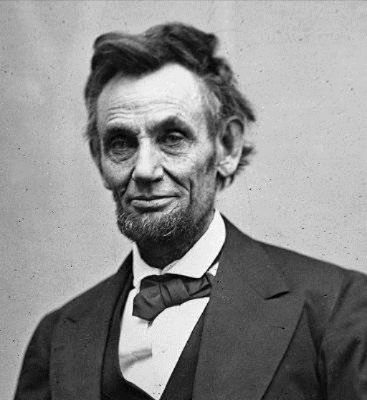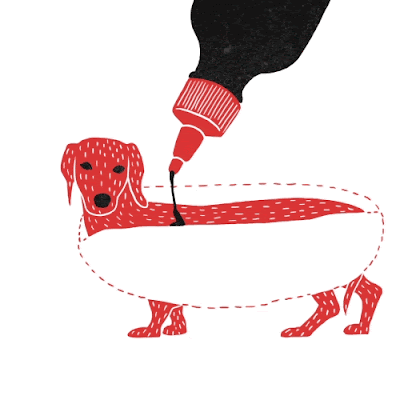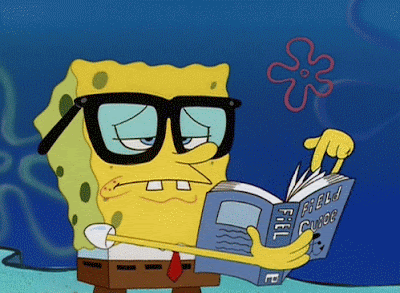Your Weekly English Digest is here! 史上最棒的美國總統,他說是林肯。英文每周一文幫你鍛鍊閱讀與寫作實力!
From the Economist intelligent Life
我最愛閱讀的經濟學人雜誌,在推出了The Economist intelligent life之後,我便在我的iPhone的 app store下載了閱覽的程式,這樣每次坐捷運都可以閱讀文章。在家裡我就用iPad來閱讀。我強力推薦這本刊物。因為這本雙月刊撰稿的每位文字工作者,都是歐美兩國的一時之選。這些優秀的寫手,有些是資深主編,有些是知名作家,大家都以撰寫政治與經濟專題的犀利與敏銳度,來書寫軟性的人文與藝術文字。
以下是這本雙月刊的介紹:
Intelligent Life is a bi-monthly lifestyle and culture
magazine from The Economist. It covers the arts, style, food, wine, cars, travel and
anything else under the sun, as long as it’s interesting. It shares The Economist’s fondness for crisp prose, dry wit and free thinking. But rather than covering politics and economics, it is
about life in general and making the most of your time off, from tailoring to
museums, hotels to philanthropy, choosing wine to going green.
沒錯,就是那crisp prose清新帶勁的文字,dry wit犀利的幽默感與free thinking跳脫框架的思維,讓我深深著迷。而且無論看起來多麼平凡無奇的主題,都有辦法找到最會寫的人,讓內容綻放絢爛光彩。
我之前一直提倡要寫好英文作文,可以試著先放下文法筆記跟單字表格,先輕鬆閱讀好文章。今天張貼一篇好文與大家共享。
我的閱讀態度是,找個主題好好讀,不要太用力。
閱讀時,不用每個字都去查字典,讀一個字就停下來查一個字,這樣的過程非常辛苦(也痛苦),不但情緒會中斷,更不可能有任何樂趣(除非你天生愛查字典)。要是遇到了字典無法解決的問題,還可能產生挫敗感。這樣只會永遠恐懼閱讀英文。所以一開始不見得要求全懂、但求理解就好。
The Economist intelligent
life每期都有一個我最愛的單元,叫做「大哉問」The Big Question。其實問的都是最平凡不過的問題。如:你最喜歡的味道,或是你最喜歡的月份之類的主題,然後每個題目都請五至六個厲害的寫手(作家或是資深編輯或是記者),來分享自己的最愛。今天這一篇,我分享的是「你心目中最棒的美國總統」。
美國歷史兩百多年,一共選出了44位總統。看過幾個民意調查結果,林肯總統果真是最受歡迎的一位領袖。至於要如何在500字以內形容一個人?這篇文章做了最佳示範。大家不妨偷學文章裡面的句型風格,累積自己的寫作資糧。
以前念國中時,英文老師說,寫作文不要以Because做為每個句子的開頭,這篇文章顛覆了那樣的說法。語文是個與時俱進的玩意兒,寫作時別拘泥,多看多嘗試,have fun with it,這樣就能跳脫僵硬的思考與書寫模板。
我的理想是,不只是教大家考試而已,人生除了托福寫作,還有很大的一片天空。如果你能用鍵盤清楚表達自己的思維,那麼在人生的競賽中,你已經超越許多人了。
每個作者都有屬於自己的寫作風格,因此我建議大家在閱讀時,不需要過份分析字詞與句型架構(我這邊提供大家解析,所以應該省事多了),即便你只看得懂六成,依舊能吸取其中部分養分。閱讀的目的是讓自己重新感受文字的魅力與生活的風采,同時培養對語文的深度與廣度。去泡杯咖啡開始閱讀吧,好的文章適合一看再看,最後祝你閱讀愉快。
Question: Who was the best president?
Answer: Abraham Lincoln
By Jesse Norman
Let your eye sweep across(用眼睛)掃過 a photograph of Mount Rushmore羅斯摩爾山國家紀念公園的總統巨石像, or better still更好的方式是 the real thing,
and you will see four men who have a strong claim to be America’s greatest
president.
There is
Washington, who won the war of independence獨立戰爭 and handed over control
of the army將手中的軍權移交給 to civilian authority平民總統; who chaired主持了 the Constitutional
Convention費城制憲會議, wordlessly, in that sultry悶熱的 Philadelphia
summer of 1787; and who gave up放棄(這裡指的是下台) the presidency in 1796 and headed back to his farm rather than become a monarch君主.
Then Jefferson, drafter起草者 of the Declaration of
Independence獨立宣言 and purchaser of the Louisiana Territory路易斯安那購地案(此案所涉及的土地面積,為美國國土的22.3%,讓美國面積比原有土地多出一倍), which doubled the size of the United States
and opened up the frontier. And Teddy Roosevelt, who led the Rough Riders’莽騎兵(羅斯福總統曾當過兩年牛仔) charge up San Juan Hill, built the navy, busted monopolies粉碎壟斷 and founded
America’s national parks國家公園.
Yet Washington is
an icon, not a man; Jefferson was a devious hypocrite who betrayed his
president and friend John Adams, and proclaimed universal equality宇宙平等 but never freed
his own slaves; and Roosevelt, for all his peacetime genius, never faced the supreme
test最高測試 of leadership in war. No, for
me it has to be the last of the four, Abraham Lincoln.(這邊作者將羅斯摩爾山四位總統的巨石肖像一一介紹,前三個總統雖然對美國各有貢獻,但在作者眼中都有具體瑕疵,以此說明自己心中最棒的總統,非最後一個,也就是第四個雕像 – 林肯總統莫屬。)
Unlike the others,
Lincoln (16th president, 1861-5) grew up in adversity幼時成長於惡劣環境. He was born in a one-room log cabin一個房間的小木屋, lost his mother
at the age of nine, had the barest minimum of formal education僅受過非常少的正式教育, failed as a small businessman曾經創立小生意失敗, and taught himself the law by ploughing carefully through細心苦讀 Blackstone’s
"Commentaries"威連黑石爵士的英國法律評論. He was tall and skinny, and not pretty:
accused once of being two-faced兩面人(指表裏不一), he said if that was so, why would he have chosen the face he had? He had
served just one term一任, two years, as a Congressman國會議員 before he ran for the
presidency競選總統 on the back of his national reputation as an opponent of
slavery反對奴隸制度.
Why Lincoln
作者簡介
Jesse Norman is Conservative MP for Hereford











謝謝教練的分享, 這篇生字真多...
回覆刪除Hi Levi,
回覆刪除難一點的文章就慢慢讀,不要心急,讀懂後保證功力大增。
有志者不怕難,我們就是要讀這類的文章英文才會進步喔。
加油!
報告教練,
回覆刪除學生有兩個問題。
第一個問題是,
作者對於華盛頓的看法是?
他說他是icon,不是man。
是因為他不眷戀權力的行為不像人類嗎?
第二個問題是,
The Economist intelligent life是不是要付費閱讀的呢?
有些教練之前分享的每周一文也是來自The Economist intelligent life,
但我在網路上卻找不到原文了。
謝謝教練。
Hi Shih Hsing,
回覆刪除我個人覺得作者以為華盛頓是icon講的是他的神性(就好像台灣的媒體會造神一樣),icon當然也是一種恭維,但是這樣的領袖缺乏一種人性的溫暖與親切感,所以給人距離感。你當然可以說因為他不眷戀權力,但我的解讀是一種高高在上的感覺,不如林肯來得溫暖。
The Economist intelligent life已經改名稱了,現在叫做1843我的部落格有介紹過。網站應該還是免費的,你可以Google "the economist 1843"看看。我覺得這是世界上最有品味的軟性主題網站。
報告教練,
刪除我剛剛馬上確認了一下,
是在12/11/2016的每周一文介紹的,
我還沒看到那裏去。XDD
網站確實還是免費的。
感謝教練。
OK喔,請多利用免費的網站資源啊。
回覆刪除